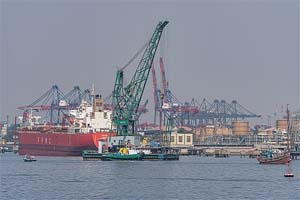
Congestion at Port Qasim
The Port Qasim Authority has amended unloading operations and accentuated the compulsion for effective coordination among all stakeholders. In response to severe congestion caused by the slow discharge of sugar consignments, it was noted that sugar was being unloaded at rates below the port capacity of 4,000–4,500 tons per day, an issue also affecting export activities such as cement and clinker shipments—measures were introduced to streamline operations at Port Qasim. To lessen congestion, authorities decided to divert imports to Gwadar Port up to 60% of sugar and enforce a strict first-come, first-served berthing policy for all vessels at both Port Qasim and Karachi Port. Both port authorities were instructed to strictly implement the berthing policy, monitor discharge performance, and impose penalties for avoidable delays. The Trading Corporation of Pakistan was directed to enhance operational planning, coordinate vessel arrivals more effectively, and maintain continuous communication with port authorities. All relevant agencies, including state importers, are urged to align their freight movement plans prior to cargo arrivals. The constructive engagement and consistent adherence to performance standards are indispensable to sustaining port efficiency and preventing future logistical disruptions.
|
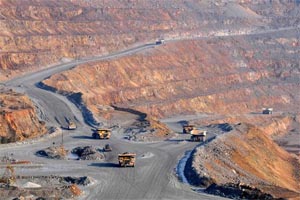
Modernize Mineral Processing in Baluchistan
To invest and modernize resource extraction and mineral processing projects in Baluchistan, under a provisionally named Pak-Handar Mining Services and Management Company, an established joint venture of The Sanjrani Mining Company (SMC) and China’s Guangdong Handar. The Memorandum of Understanding has been signed in Guangzhou, China, and chairman of The Sanjrani Mining Company. Under the partnership, technical expertise and management support will be contributed by Guangdong Handar, while SMC will utilize its local network and assets to facilitate smooth operations. The agreement objects to enhance mining collaboration, falls under the broader framework of the China-Pakistan Economic Corridor (CPEC).
|

Oil Production at Dhok Sultan-03 - District Attock
Oil production from Dhok Sultan-03 well, situated in the Dhok Sultan Block, District Attock, Punjab. Production began on November 1, 2025, under an Appraisal and Extended Well Testing arrangement. The production setup is designed to efficiently handle both oil and gas streams: crude oil is processed at the Dhok Sultan Oil Handling Facility, whereas gas is transported to the Meyal Gas Processing Facility for treatment and onward distribution. The operation has the potential to increase output to 1,400 barrels of oil per day, along with 2.5 million standard cubic feet of gas and approximately 15 tonnes of LPG daily. Oil from Dhok Sultan-03 is supplied to Attock Refinery Limited (ARL), while gas is sold to Sui Northern Gas Pipelines Limited (SNGPL), the designated off taker. Pakistan Petroleum Limited (PPL) has commenced oil production and operates the block with a 75% working interest, while Government Holdings (Private) Limited (GHPL) owns the remaining 25%. PPL reaffirmed its commitment to strengthening Pakistan’s energy security, emphasizing that continued exploration and development initiatives
|
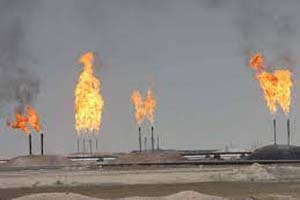
Gas Processing Capacity at Gambat
Enhancement in gas processing capacity at Gambat South Gas Processing Facility (GPF-II), located in the Gambat South Block, Sanghar District, Sindh Province. Originally commissioned in 2016, the GPF-II Plant had a design capacity of 50 million standard cubic feet per day (MMscfd) of raw gas containing 26% CO₂. Through operational improvements, capacity was previously optimized during 2021–22 to handle 55 MMscfd of raw gas. The enhancement has resulted in an incremental production gain of approximately 5 MMscfd of gas, 35 barrels per day of condensate, and 1 metric ton of LPG. PPL operates the Gambat South Block with a 65% working interest, alongside joint venture partners Government Holdings (Private) Limited (GHPL) and Asia Resources Oil Limited (AROL), which hold 25% and 10% working interests, respectively.
|
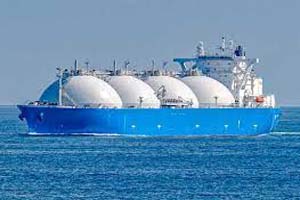
Pakistan Asked Qatar to Divert 29 RLNG Cargoes
Pakistan has formally requested Qatar to divert 29 RLNG cargoes scheduled for 2026, increasing its earlier request for 24 shipments amid a continued fall in domestic gas demand. Qatar is expected to respond to the revised proposal on November 15, 2025. If approved, the diversion could save Pakistan about $339.6 million in foreign exchange, based on the long-term contract price of $28.3 million per cargo. The request aligns with updated demand forecasts and ongoing efforts to manage LNG procurement obligations amid subdued consumption trends. Under a net proceeds differential mechanism, the cargoes will be diverted to the open market, and Pakistan will bear the financial loss if Qatar sells the LNG cargoes at a price below the agreed contract price. The price differential will be passed on to LNG consumers, with policy guidelines to be issued by the federal government to the Oil and Gas Regulatory Authority (Ogra) to implement this.
|
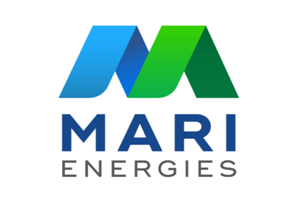
Block 28 - North Exploration Rights to Mari Energies Limited
The Ministry of Energy (Petroleum Division) has provisionally awarded exploration rights for Block 28-North (3068-11) in Balochistan to Mari Energies Limited. The company announced that it is coordinating with the Directorate General of Petroleum Concessions (DGPC) to finalize and execute the Petroleum Concession Agreement (PCA) and Exploration Licence (EL) in line with applicable regulations and procedures. The grant of exploration rights remains subject to the formal execution of these agreements with the government. Mari Energies Limited, incorporated in Pakistan on December 4, 1984, is engaged in the exploration, production, and sale of hydrocarbons. The company operates the Mari Gas Field in Daharki, Sindh—the largest gas reservoir in the country—positioning MARI as Pakistan’s second-largest producer of natural gas.
|
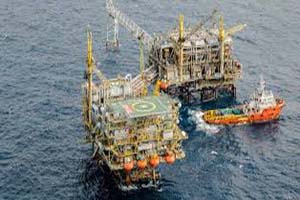
Mari Energies Limited Has Won Provisional Award of Offshore Exploration
Mari Energies Limited has secured the provisional award of 23 offshore exploration blocks, of which eighteen (18) blocks are awarded as an Operator and five (05) blocks as a joint venture partner with other E&P Companies, across the Indus and Makran basins. Mari Energies has entered partnership with Turkish Petroleum Overseas Company Limited, Oil and Gas Development Company Limited, Pakistan Petroleum Limited, Prime Global Energies Limited (Prime), United Energy Pakistan Limited, Orient Petroleum Inc and Fatima Petroleum Company Limited. The acquisition of these offshore exploration blocks is a part of its long-term strategy where it aims to not only find new hydrocarbon resources but also to largely contribute towards energy security of Pakistan. The acquired blocks, together with various consortiums, will allow systematic exploration of multiple untested hydrocarbons plays across both the Indus and Makran basins.
|
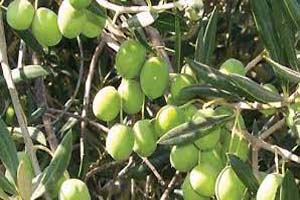
National Olive Policy
The government plans to establish a dedicated Olive Oil Council under the forthcoming National Olive Policy to regulate Pakistan’s expanding olive industry, boost exports, and reduce reliance on imported edible oils. The council will oversee coordination, certification, branding, and quality assurance, as well as implement the National Olive Policy and Action Plan in line with International Olive Council (IOC) standards. The policy emphasizes sustainable production, rural development, and value-added exports. According to the Ministry of National Food Security & Research, the goal is to make Pakistan a competitive global olive producer within five to seven years. Olive cultivation now spans 55,000 acres across 60 districts, engaging 11,000 farmers, supported by 51 extraction units and modern processing facilities. With Italy among key international partners, the council will drive marketing, exports, and olive-based tourism, positioning Pakistan’s olive sector as a climate-resilient contributor to national prosperity.
|
|
© 2025 Alpine Marine Services Private Limited
all rights reserved
|
|
|